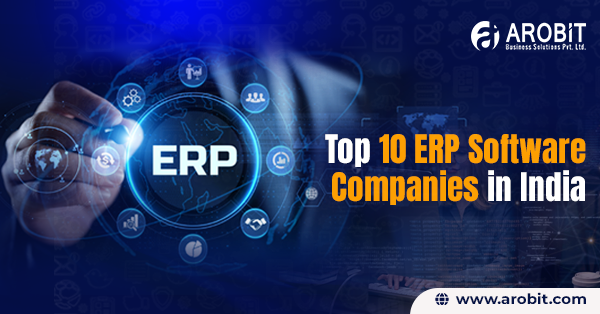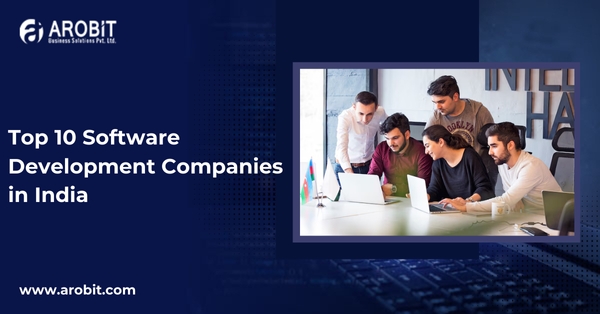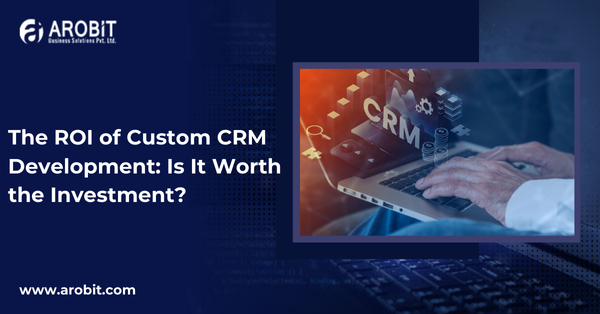Enterprise Resource Planning or ERP software, has now become an integral set of tools for business streamlining and optimizing efficiencies. The Indian ERP market, according to a report by Statista, is expected to reach around $10 billion by 2025 with an estimated compound annual growth rate (CAGR) of around 12% from 2020 to 2025. This is spurred by the growing need for automation and integration of various business processes across different sectors. The demand for ERP solutions company services in India has been growing since organizations are learning the importance of integrating their systems to enhance productivity as well as decision-making. This blog will give you all the best ERP software in India, focusing on the offerings, key features, and customer success stories of each.
Best ERP Software Companies in India
1. SAP India
Overview:
SAP is one of the leading organizations across the globe in ERP solutions. Comprehensive offerings through SAP S/4HANA Cloud cater to different industries and business sizes, making it a preferred choice among various enterprises. Key Features:
- Real-time Analytics: It has analytics through in-memory computing.
- Industry-Specific Solutions: SAP is offering modules under different domains that include manufacturing, retail, and healthcare.
- Scalability: It serves the requirement of growing a business by investing a minimum amount of capital.
Benefits:
- It is best suited to large enterprises with multiple processes.
- It caters to the specific requirements of the industry.
- Consolidates operations by integrating the various processes.
Customer Success:
Large Indian corporations have adopted SAP solutions and gained increased operational efficiency along with data-based decision-making.
2. Arobit Business Solutions
Overview:
Arobit offers powerful ERP solutions focused on automation, integration, and real-time analytics for quickened business decision-making. As an ERP Software Development Company in India, it serves both SMEs and large-scale enterprises. Key Features:
- Automation capabilities: It standardizes business processes so that not much human intervention is required.
- Existing Integration with Systems: A smooth flow of data across business functions.
- Real-time Analytics: It is a form of business decision-making that involves the act of coming up with decisions quickly.
Benefits:
- Operational Efficiency and Automation: It increases efficiency through automation.
- Cross-Departmental Collaboration: It enhances collaboration between different departments.
- Real-time Insights and Data-Driven Strategy: It enables strategy.
Customer Success:
Arobit has managed to standardize operations for more than five hundred SMEs, saving them a lot of costs and increasing efficiency.
3. Oracle NetSuite
Overview:
NetSuite is one of the most renowned ERP software companies in India, known for its cloud-based ERP solutions that integrate financials, CRM, and eCommerce functionalities for both large and small enterprises. Key Features:
- Cloud-Based Solution: It helps improve the efficiency of working from anywhere.
- Comprehensive modules: finance, inventory, and CRM are covered.
- Advanced Analytics: Rich reporting and strategic planning.
Benefits:
- Scalable and adaptable to meet specific business needs.
- Supports global operations with local compliance features.
- Increases the visibility and control of the overall business.
Customer Success:
Companies that have adopted NetSuite have shown better financial management and consolidated operations in more than one location.
4. Microsoft Dynamics 365
Overview:
Microsoft Dynamics 365 integrates finance, operations, and customer management into one cohesive business function with an easy-to-use interface. As one of the top ERP providers in India, it caters to both SMEs and large enterprises. Key Features:
- Integrated System: It's an integrated system that comprises various functions of the business under one solution.
- Usability: Users can enjoy easier usage of their system due to easy navigation.
- Flexibility: Configuration allows personalization to suit the specific needs of the organization.
Benefits:
- This improves collaboration between departments.
- It helps in better customer relationship management.
- Supports scalability as the business grows.
Customer Success:
Organizations using Dynamics 365 have seen the possibility of increasing efficiency in their operations and improving customer engagement.
5. Odoo
Overview:
Odoo is an open-source ERP platform that offers a modular approach for businesses that helps them customize systems according to specific needs. Key Features:
- Open Source Flexibility: Organizations can modify the software as per their requirements.
- Comprehensive Modules: Renders from accounting and project management applications.
- Easy to Use Interface: The interface of this application is so easy to adopt without much long-term training for the users.
Benefits:
- This can be an easily cost-effective option for small to medium enterprises.
- It is highly customizable for the varied businesses and their procedures.
- It supports rapid deployment as well as easier integration with other existing systems.
Customer Success:
Many startups have opted for Odoo, considering its adaptability and cost-effectiveness. It ensures streamlined operations as well as resource utilization.
6. Infor CloudSuite
Overview:
Infor ERP solutions are based on industry-specific modules designed to help augment business processes for every industry. Key Features:
- Industry-specific modules: manufacturing and healthcare, among others.
- Cloud access: reliable access to critical business data from anywhere.
- Team collaboration: improved teamwork due to integrated team communication tools.
Benefits:
- Operational efficiency that is matched up with industry needs.
- Compliance: Support in adapting to various industry regulations.
- IT overhead reduction through cloud-based deployment.
Customer Success:
Infor has been successful in industries by improving productivity while reducing operation costs through implemented solutions.
7. Epicor ERP
Overview:
Epicor is a scalable solution built primarily for manufacturing and distribution enterprises, ready to fit into both cloud and on-premises deployment. Key Features:
- Scalable Architecture: It adapts to your business without any major change.
- Industry-Specific Functionality: Focused features of manufacturing and distribution industries.
- Robust Reporting Tools: Epicor has more advanced analytics to enhance better decision-making.
Benefits:
- It boosts production efficiency with tailored solutions.
- It supports complex supply chain management needs.
- It delivers real-time visibility into operations.
Customer Success:
Manufacturers who implement Epicor report improvements in production scheduling and inventory management.
8. Tally Solutions
Overview:
Tally is accounting software but, at the same time, extends into a complete ERP suite for SMEs. Key Features:
- GST Compliance: It follows Indian tax laws and rules.
- User-Friendly Interface: It makes the accounting process simple for the users.
- Tools of Inventory Management: It helps keep a record of how much stock is actually left.
Benefits:
- It is a low-cost solution, specially designed for SMEs.
- It's not very time-consuming and barely needs any training.
- Very good reporting feature that generates financial ones.
Customer Success:
Tally has been implemented by various SMEs and is used for keeping the books of account perfectly, thus raising the level of compliance and accounting efficiency.
9. Ramco Systems
Overview:
Ramco Systems offers revolutionary cloud-based ERP solutions that have the primary focus on aviation, logistics, and manufacturing markets but also use AI capabilities. Key Features:
- Industry-Specific Solutions: Modules offer industry-specific solution capabilities to unique industry challenges.
- AI Integration: Uses AI for predictive analytics and automation of routine tasks.
- Mobile Access: Enables users to manage operations on the move through mobile applications.
Benefits:
- Increases operational efficiency through automation.
- Enhances the ability to make real-time decisions with advanced analytics.
- Delivers quick adoption capabilities in response to changing industry needs.
Customer Success:
Ramco has implemented its solutions across many aviation and logistics companies that have seen improved operations along with cost savings.
10. Zoho ERP
Overview:
Zoho is an emerging cloud-based software company that provides a finance, HR, CRM, and inventory management combination in one suitable integrated platform for SMEs. Key Features:
- Cost-effective Pricing Model: Makes it affordable for smaller businesses.
- All-in-One Platform: It has more than 40 integrated applications for full management.
- Scalability Options: It gives opportunities to scale up business operations along with businesses as they grow.
Benefits:
- Offers simplification of the management of multiple functions from one platform.
- Improves interdepartmental collaboration.
- Real-time insights into business performance.
Customer Success:
Zoho is becoming a starting point for startups because of its affordability and holistic offerings that help them streamline their operations effectively.
Comparison Table
|
Company |
Key Features |
Ideal For |
|
SAP India |
Real-time analytics |
Large enterprises |
|
Arobit Business Solutions |
Automation & integration |
SMEs |
|
Oracle NetSuite |
Comprehensive modules |
All sizes |
|
Microsoft Dynamics 365 |
Integrated platform |
Medium to large enterprises |
|
Odoo |
Open-source flexibility |
Startups & SMEs |
|
Infor CloudSuite |
Industry-specific modules |
Various sectors |
|
Epicor ERP |
Scalable architecture |
Manufacturing & distribution |
|
Tally Solutions |
GST compliance |
Small & medium enterprises |
|
Ramco Systems |
AI integration |
Aviation & Logistics |
|
Zoho ERP |
All-in-one platform |
Startups & SMEs |
FAQs
Q1.What is an ERP system?
A1.An ERP system integrates various business processes into one unified system, facilitating better data flow between departments.
Q2.How can an ERP system benefit my business?
A2.It enhances efficiency by automating processes, improving data accuracy, providing real-time insights, and supporting better decision-making.
Q3.What are those considerations for choosing an appropriate provider while deciding on an ERP?
A3.These are some of the considerations that would go into scalability, as well as customization options and industry-specific functionalities, along with service support and total cost of ownership for an ERP provider.
Conclusion
The ERP industry in India is highly competitive and rapidly evolving, with strong competition among both established leaders and innovative newcomers. Many ERP software developers in India offer customized solutions based on the specific needs of a business. The spectrum ranges from completely open-source options like Odoo and ERPNext, which can be customized in every respect, to end-to-end solutions offered by major players like SAP ERP, Oracle NetSuite, and Microsoft Dynamics 365. The selection of the right ERP system is crucial in enhancing operational efficiency and achieving strategic goals. All these highlighted companies should, therefore, be considered by enterprises that are seeking effective ERP solutions suited to their specific needs.




![How to Develop AI Software [Step-by-Step Guide] How to Develop AI Software [Step-by-Step Guide]](https://www.arobit.com/blogpanel/public/media/blog/1738663632xkapwzjegx.png)


